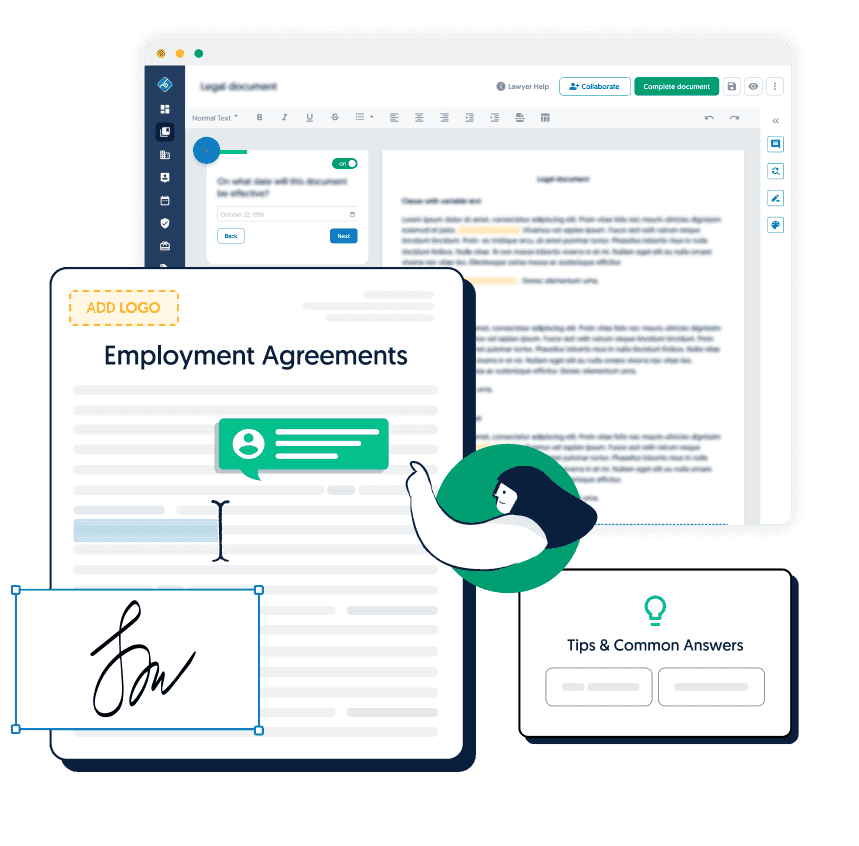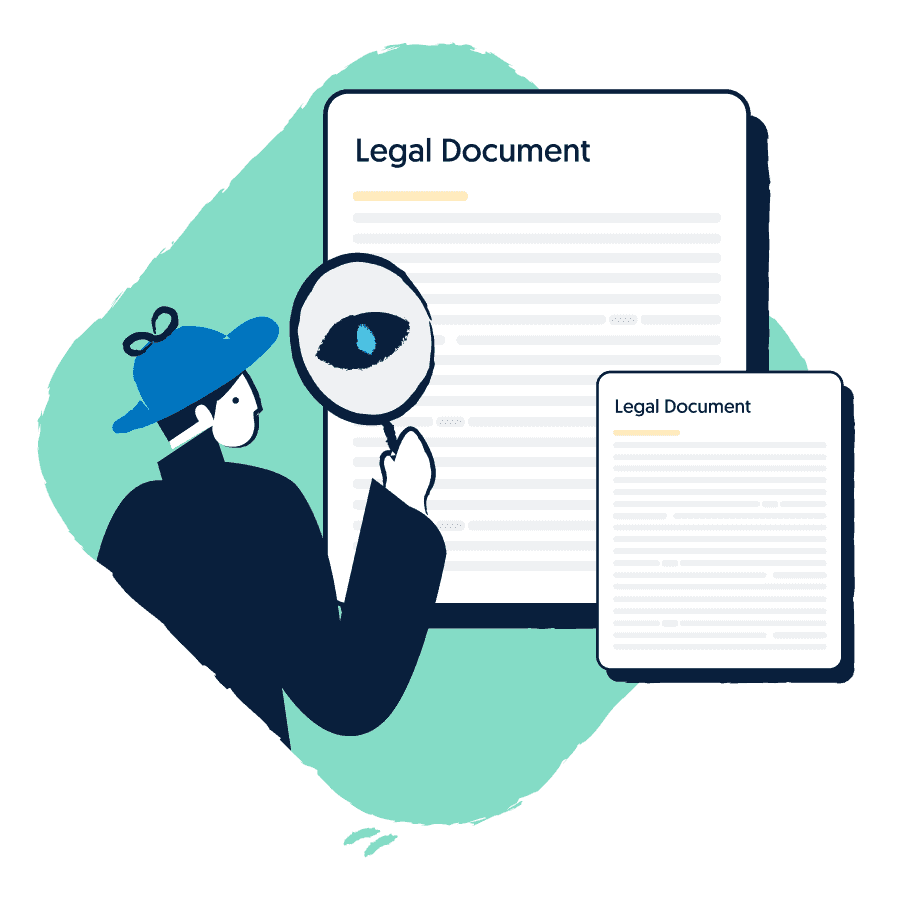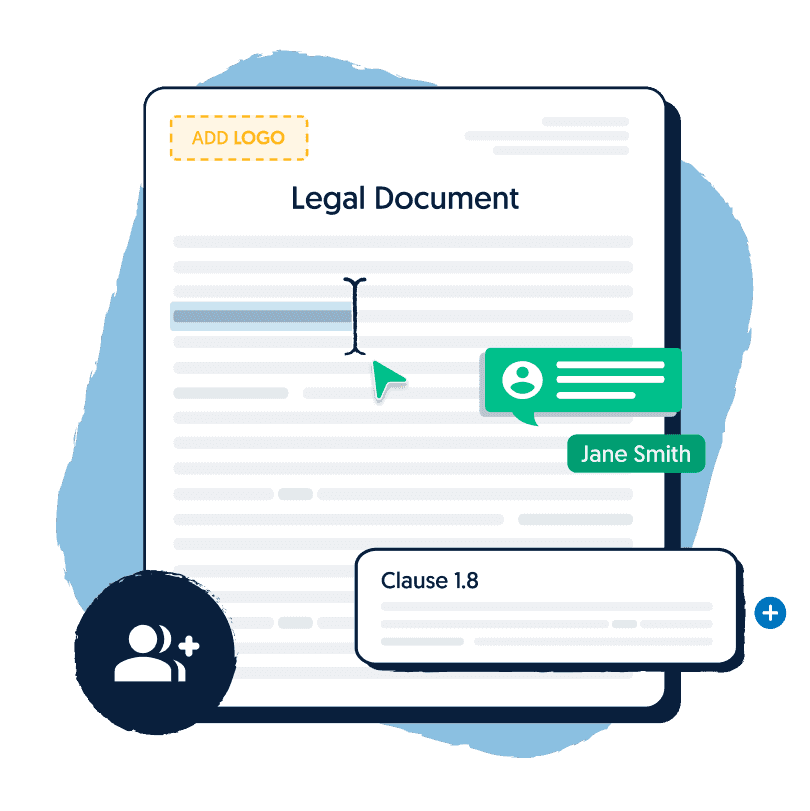
Do I Need an ABN When Registering a Company?
Find out the correct order for company setup. Learn if you need an ABN to register a company and when it becomes legally required.
Take control of your time. Get access to legally-verified legal documents quickly.

Employment documents fit to hire full-time employees
Employment documents when hiring employees for a fixed term
An employment agreement, also known as an employment contract, is a legally binding agreement between an employer and an employee that outlines the terms and conditions of employment.
It is a crucial document that sets out the expectations and obligations of both parties and serves as a reference point in the event of any disputes or misunderstandings.
The main purpose of an employment agreement is to establish the terms and conditions of employment, including but not limited to the following:
There are various types of employment agreements in Australia, including full-time, part-time, casual, and fixed-term contracts. Each type has its own set of requirements and obligations, depending on the nature of the job and the industry.
Regardless of the type of employment agreement, there are key things that should be included to ensure clarity and avoid ambiguity. These include the job title and description, remuneration, hours of work, leave entitlements, notice periods, and any specific requirements or restrictions.
An employment agreement is a type of contract, which means that it is legally binding and enforceable. As such, it is important to ensure that the terms and conditions are fair and reasonable and that both parties fully understand and agree to them.
While it is possible to write your own employment contract, it is highly recommended that you seek legal advice or use an employment agreement template provided by a reputable source such as Lawpath. This will ensure that the document complies with relevant legislation and covers all necessary details.
In Australia, it is a legal requirement for employers to provide their employees with a written employment agreement within the first month of employment. This agreement must include specific details, such as the rate of pay, working hours, and leave entitlements.
Employers cannot change employment contracts without the agreement of the employee unless there is a specific provision in the contract that allows for variation. Any changes to the agreement must be made in writing and signed by both parties.
Employment agreements are legally binding and enforceable in Australia, provided that they comply with relevant legislation and cover all necessary details.
In the event of a dispute, the agreement will be used as a reference point to determine the rights and obligations of both parties. It is therefore important to ensure that the document is accurate, clear, and complete.
Set up a free account
Search and find the document you need from our list
Follow the prompts and fill in all the relevant details
View and share your ready to use legal document


Find out the correct order for company setup. Learn if you need an ABN to register a company and when it becomes legally required.

Ever wonder if your small business can use a personal bank account? Read this article to learn if it is possible.

Learn key steps for leasing business premises in Australia, from rent terms to legal protections.



Sign up to a free Lawpath account!
Our experienced lawyers are here to help.

Solutions

Copyright Lawpath Operations Pty Ltd ABN 74 163 055 954. Lawpath is an online legal service that makes it faster and easier for businesses to access legal solutions solely based on their own preferences. Information, documents and any other material featured on the Lawpath website, blog or platform is general in nature. You should always seek advice from a qualified professional to check if Lawpath's materials or services meet your particular circumstances. You can access in-house and 3rd party qualified professionals through certain products sold by Lawpath. Use of Lawpath and lawpath.com.au is subject to our Terms and Conditions and Privacy Policy.
Lawpath Operations Pty Ltd (ACN 163 055 954) ("Lawpath") is a corporate Authorised Representative (number 1316602) of Amplus Global Pty Ltd (ACN 162 631 325), the holder of Australian Financial Services Licence number 505929. Any financial product advice provided in this website is general in nature. Content on this website does not take into account the objectives, financial situation or needs of any person, and as such, you should consider the appropriateness of the advice having regard to your own objectives, financial situation and needs. Where necessary, you should obtain a Product Disclosure Statement relating to the product and consider it before making any decision about whether to acquire the product. Lawpath believes the information contained in this website is correct. All information, opinions, conclusions, estimates or recommendations provided are included with due care to its accuracy; however, no representation or warranty is made as to their accuracy, completeness, or reliability.